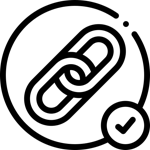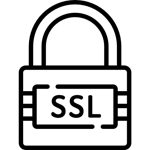- 56 minutes
- COVID-19 Resources
- Local Strategies
- SEO
Beginner,
Intermediate
Get a behind-the-scenes-look into FareHarbor's 2024 season

E-A-T (Expertise, Authority, and Trust) is one of the ways in which Google’s human quality raters determine the quality of a site. While there is no definitive answer to whether E-A-T is truly a ranking factor, there is a heavy emphasis on E-A-T in Google’s Quality Raters’ Guidelines (QRG) – a document that website owners can use to understand the kind of content Google values.
This guide will cover what E-A-T is, what the QRG has to say about it, and some suggestions on how businesses can improve E-A-T on their websites.
Google’s Quality Raters’ Guidelines (QRG) are a set of parameters by which human raters assess the quality of websites. It outlines what Google considers to be high- and low-quality websites — and according to Google officials, this document shows what they ultimately want the algorithm to do. The QRG, however, is not a roadmap to how the algorithm itself works or a list of ranking factors.
According to the QRG, the first step toward determining the quality of a website or page is understanding its purpose. Understandably, quality pages should be beneficial in some way to the user, and one way to determine this is by looking at:
According to some SEO professionals, E-A-T is especially important for “Your Money Your Life” (YMYL) sites — that is, those sites that help users make life decisions and, importantly, those that sell products. E-A-T is extremely important for these types of sites because users need to feel comfortable providing their credit card information. Tour and activity sites may be considered YMYL because a purchase, in the form of an online booking, takes place.
 About Us pages are signals to both readers and Google’s quality raters that the information on your website is trustworthy. For example, if your boat captain has 25 years of experience, that demonstrates their knowledge of the industry and should be highlighted. For websites that frequently publish blog posts and update their content, a great way to build trust in your content is to create author bios that outline the expertise of the author — this is known as establishing author E-A-T. Learn more about creating a high-quality, trustworthy About Us page that converts.
About Us pages are signals to both readers and Google’s quality raters that the information on your website is trustworthy. For example, if your boat captain has 25 years of experience, that demonstrates their knowledge of the industry and should be highlighted. For websites that frequently publish blog posts and update their content, a great way to build trust in your content is to create author bios that outline the expertise of the author — this is known as establishing author E-A-T. Learn more about creating a high-quality, trustworthy About Us page that converts.
 With the BERT Algorithm Update that rolled out in the Fall of 2019, Google has become better at “reading” and interpreting website content — and this includes being able to identify content that is written by an expert or an amateur. Some of the signals that point to expert-written content include:
With the BERT Algorithm Update that rolled out in the Fall of 2019, Google has become better at “reading” and interpreting website content — and this includes being able to identify content that is written by an expert or an amateur. Some of the signals that point to expert-written content include:
 Pro-tip: When it comes to content, quality is always more important than quantity — content filled with fluff and stuffed with keywords is meaningless. For more on how to create quality content, check out our guide to creating content that your customer — and Google — want.
Pro-tip: When it comes to content, quality is always more important than quantity — content filled with fluff and stuffed with keywords is meaningless. For more on how to create quality content, check out our guide to creating content that your customer — and Google — want.
 Backlinks are at their core a way to establish authoritativeness for your website. Gaining links from other sites in your niche that have authority helps your SEO and communicates to users that other experts in your field have found your website’s content to be helpful or trustworthy. For tips on how to build links, head over to our outreach strategy guide.
Backlinks are at their core a way to establish authoritativeness for your website. Gaining links from other sites in your niche that have authority helps your SEO and communicates to users that other experts in your field have found your website’s content to be helpful or trustworthy. For tips on how to build links, head over to our outreach strategy guide.
 Social proof, including online reviews, establishes trustworthiness for your website and your business. Think of your reviews as a track record — if users can see that your company has many happy customers, this signals to them that they’re likely to have a good experience with you, and your responses to reviews also provide insight into how you interact with your customers. Learn more about the importance of reviews and how to manage your online reputation.
Social proof, including online reviews, establishes trustworthiness for your website and your business. Think of your reviews as a track record — if users can see that your company has many happy customers, this signals to them that they’re likely to have a good experience with you, and your responses to reviews also provide insight into how you interact with your customers. Learn more about the importance of reviews and how to manage your online reputation.
 When customers are doing business with you online, it gives them peace of mind to clearly understand what your policies are in terms of cancellations, refunds, safety guidelines on tours, rental policies, etc. Make sure that this information is easy to find on your website and that it’s easy to understand. Even though these pages are not likely to rank, you should still index them to make sure Google knows where they are on your site.
When customers are doing business with you online, it gives them peace of mind to clearly understand what your policies are in terms of cancellations, refunds, safety guidelines on tours, rental policies, etc. Make sure that this information is easy to find on your website and that it’s easy to understand. Even though these pages are not likely to rank, you should still index them to make sure Google knows where they are on your site.
 Secure Website
Secure Website The vast majority of Internet users are unlikely to complete a purchase on a site that isn’t secure. Read up on how to make your website secure with an SSL certificate.
The concept of E-A-T might seem hard to pin down at first, but the important thing to understand is that Google values websites that make it clear to users and the search engine alike that the information presented is trustworthy. Transparency about who you are, what your business is about, and what steps you’re taking to make sure your customers have a safe and positive experience is a great way to build E-A-T. Try out these tips and measure your rankings to find what works for your business. For more search engine tips, explore our SEO guides.